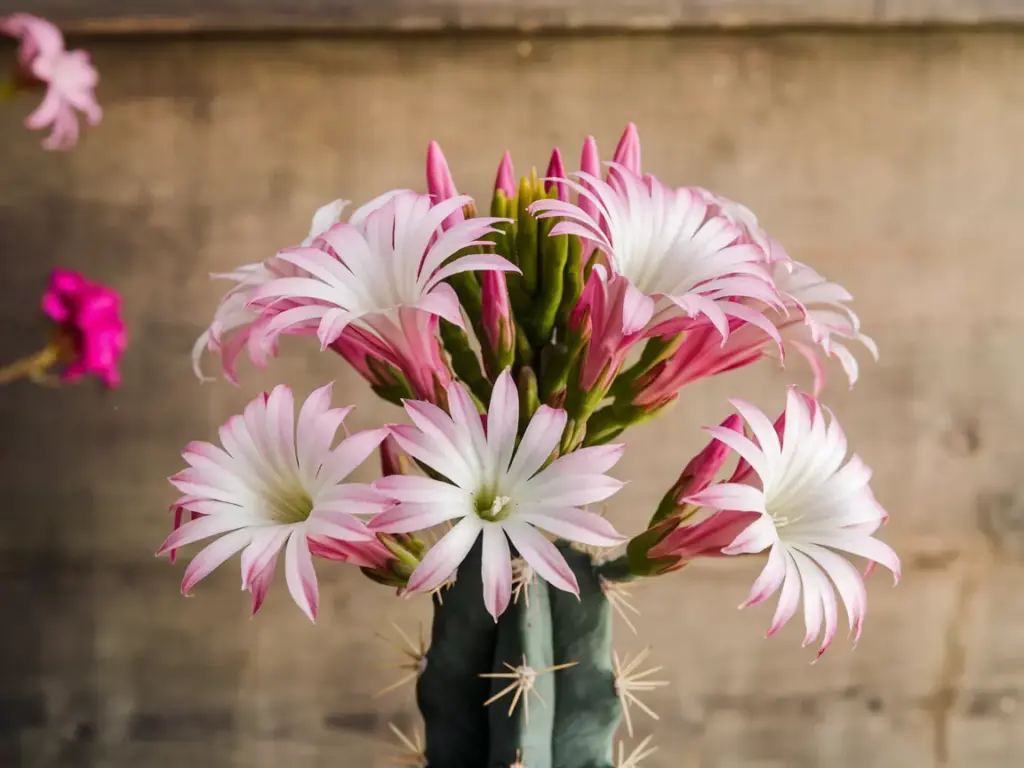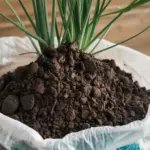10. Christmas Cactus (Schlumbergera): The Holiday Blooming Wonder

I inherited my first Christmas Cactus from my grandmother, and it’s still blooming after 15 years! These long-lived beauties are not only pet-safe but can become treasured family heirlooms. What’s even more amazing? They’re actually epiphytes, not desert cacti at all!
Understanding Bloom Cycles
Let me share something fascinating about these plants: there are actually three different types of holiday cacti:
- Christmas Cactus (Schlumbergera x buckleyi): Blooms in December
- Thanksgiving Cactus (S. truncata): Flowers in November
- Easter Cactus (S. gaertneri): Spring bloomer
Each has slightly different leaf shapes, but they all need similar care to produce those gorgeous blooms.
Water and Temperature Secrets
Here’s my tried-and-true care routine that keeps my plant thriving:
Temperature Requirements:
- Normal growing season: 65-75°F
- Blooming period: 60-65°F
- Need cool nights (55-60°F) to trigger blooming
Watering Schedule:
- Growing season: Water when top inch is dry
- Pre-blooming: Reduce watering by half
- During bloom: Keep soil lightly moist
- Never let water sit in saucer
Triggering the Blooming Magic
Want to know my secret for getting loads of blooms? Here’s my annual routine:
- Starting in October:
- Reduce watering gradually
- Place in complete darkness for 12-14 hours daily
- Keep temperatures cool
- Avoid moving the plant
- Once buds appear:
- Resume normal watering
- Return to regular light
- Maintain consistent temperature
Rainbow of Bloom Colors
Over the years, I’ve collected several varieties with stunning colors:
- Classic Pink: The most common variety
- Deep Red: Rich, vibrant blooms
- White: Pure, elegant flowers
- Salmon: Unique peachy tones
- Purple: Rare but spectacular
Long-Term Care Success
Here’s how I’ve kept my grandmother’s plant thriving:
- Year-Round Care:
- Spring/Summer: Regular feeding with balanced fertilizer
- Fall: Prepare for bloom cycle
- Winter: Enjoy blooms and maintain care
- Post-bloom: Light pruning
- Repotting Guidelines:
- Every 2-3 years
- Use well-draining potting mix
- Choose pot just one size larger
- Best done after blooming
Propagation for Future Generations
I love sharing pieces of my plant with friends! Here’s my propagation method:
- Take Y-shaped stem cuttings
- Let them dry for 24 hours
- Plant in moist potting mix
- Keep humidity high until rooted
Troubleshooting Tips
Common issues I’ve encountered:
- Dropping buds: Usually from location changes
- No blooms: Incorrect light/temperature cycle
- Limp segments: Typically underwatering
- Red leaves: Too much direct sun
Remember, these plants can live for decades with proper care. My grandmother’s plant is living proof that with a little love and attention, a Christmas Cactus can become a cherished family tradition that blooms year after year!
Congratulations! You’ve now completed our guide to 10 amazing pet-safe plants. Each one brings its own unique beauty and benefits to your home while keeping your furry friends safe. Remember, while all these plants are non-toxic, it’s still best to discourage pets from nibbling on them. Happy growing!
Conclusion
Creating a pet-friendly indoor jungle doesn’t mean compromising on style or variety! These 10 beautiful plants will help you create a safe, green sanctuary that both you and your pets can enjoy.
Remember to always monitor your pets around any new plants, even pet-safe ones, and introduce them gradually to your space. Ready to start your pet-friendly plant collection? Your local garden center should carry most of these options – happy planting!









GIPHY App Key not set. Please check settings